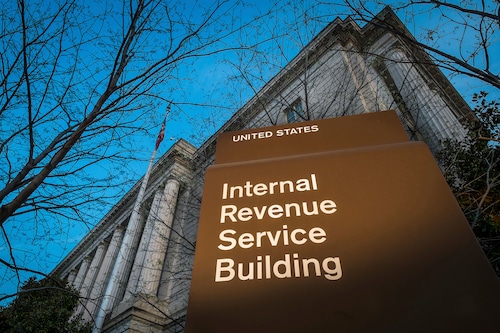IRS Sending Payments of Up to $1,400 to 1 Million People: Who Qualifies and When Will You Get Paid?
The Internal Revenue Service (IRS) recently announced that it is distributing a total of $2.4 billion in “special payments” to about 1 million people, as part of its ongoing efforts to ensure that Americans who missed out on some or all of their federal stimulus checks during the pandemic will finally receive the funds they are owed. These payments will vary in amount, with some recipients receiving up to $1,400.
This new initiative comes as part of the IRS’s attempt to correct discrepancies in the disbursement of pandemic-era relief funds. Many individuals who filed their tax returns during the pandemic were still not able to claim all of their stimulus payments. The IRS is now making efforts to remedy that by sending these automatic payments to eligible individuals.
What Are These IRS Special Payments and Why Are They Being Issued?
These “special payments” are being sent to individuals who were eligible for the “recovery rebate credit” in 2021 but did not claim it when they filed their taxes. The recovery rebate credit was part of the relief programs authorized by lawmakers to provide stimulus checks during the pandemic. For many, these payments were issued in multiple rounds, but some people who were eligible still didn’t receive the full amount they were owed.
The IRS has identified these individuals based on its internal data, which revealed that a significant number of taxpayers filed their tax returns but failed to claim the credit, either because they overlooked it or didn’t realize they were eligible. The recovery rebate credit was designed to compensate taxpayers who missed out on some or all of the stimulus checks that were issued during the pandemic. The IRS is now automatically sending payments to these individuals, making the process easier for them and reducing the potential for further delays.
Who Is Eligible to Receive a Payment from the IRS?

The IRS has confirmed that the people who will receive the special payments are those who filed their 2021 tax returns but didn’t claim the recovery rebate credit. This could be due to leaving the section blank on the tax form or inadvertently marking the credit as zero.
To be clear, the IRS is sending these payments to taxpayers based on its internal review of the data, and eligibility is determined by whether the person qualifies for the credit. If you meet the criteria, the IRS will automatically issue the payment, which can be up to $1,400.
If you believe you are eligible but have not yet received any notification, the IRS will send a letter to recipients informing them about the payment they will receive. The agency has emphasized that no action is required from recipients to claim these payments.
Do You Need to Apply to Receive the IRS Payment?
No, there is no need to apply for the special payment. The IRS has made it clear that these payments will be automatically issued to eligible individuals. The payment process is designed to be as easy as possible for taxpayers, and no additional filing or amended tax returns are required to receive it.
This automatic distribution is part of the IRS’s goal to minimize confusion and help Americans receive the money they are owed without going through an extensive filing process. Once the IRS has processed the payment, recipients will be notified via a letter detailing the amount they are to receive and the expected date of payment.
Read More:
- https://theworldseye.com/trump-pushes-new-spending-demands-as-government-shutdown-looms-house-gop-in-disarray/
- https://theworldseye.com/who-is-luigi-mangione-accused-unitedhealthcare-ceo-killer/
- https://theworldseye.com/what-to-know-about-tax-years-2024-and-2025/
When Will the IRS Send the Payments?
The IRS has stated that the payments will be issued in December, with most individuals expected to receive their payments by late January 2025.
The disbursement of these funds will be done through two main methods: direct deposit and paper checks. Direct deposit will be the primary method for those who previously provided their bank account details to the IRS, while paper checks will be sent to those who don’t have direct deposit information on file.
Given the scale of the operation, the IRS expects that the payments will be spread out over several weeks. Therefore, while many recipients may see their funds sooner, others could experience delays depending on how the IRS processes their payments.
What if You Didn’t File Your 2021 Taxes?
If you didn’t file your taxes in 2021, there is still a chance for you to claim your missing stimulus payments. However, if you wish to receive the recovery rebate credit and any other refunds you may be owed, you must file your 2021 tax return by April 15, 2025.
The IRS has reminded individuals that they only have until this deadline to submit their tax returns for 2021 in order to qualify for the credit and the associated payments. If you fall into this category, it’s important to file your tax returns as soon as possible to avoid missing out on the opportunity to claim these credits.
Who Is Eligible for the Recovery Rebate Credit and Special Payment?
The special payments are being sent to taxpayers who meet specific eligibility criteria. Individuals who did not claim the recovery rebate credit in their 2021 tax filings—whether because they didn’t complete the section or mistakenly marked it as $0—will be automatically sent the payment.
If the IRS identifies you as eligible for the recovery rebate credit, you’ll receive the payment. This is part of the IRS’s continued efforts to ensure that Americans receive the full stimulus funds they were owed, even if there was an oversight during the initial rounds of payments.
How Many Rounds of Stimulus Payments Were There, and What Did People Receive?
During the pandemic, lawmakers authorized three separate rounds of stimulus payments, designed to provide financial relief to Americans impacted by COVID-19. The three rounds of payments totaled around $814 billion, and eligibility for these payments was primarily based on income, tax filing status, and the number of dependents.
- March 2020: The first round, sent under the CARES Act, provided $1,200 per eligible individual and $500 per child under 17.
- December 2020: The second round, issued under the Consolidated Appropriations Act, provided $600 per eligible individual and $600 per child.
- March 2021: The third round, delivered under the American Rescue Plan, provided up to $1,400 per eligible individual and child.
These payments helped millions of Americans meet basic needs during the height of the pandemic, but some individuals did not receive the full amount they were entitled to. This new round of payments from the IRS is intended to correct that issue for those who qualified but missed out on some or all of their payments.
Final Thoughts: How Can You Ensure You Get Your Payment?
If you are one of the 1 million people the IRS is targeting for this special payment, you don’t need to do anything. The IRS has made it as easy as possible for people to receive their owed payments, with no additional action required. The payments will be processed automatically, and the IRS will notify recipients by letter about the payment.
If you haven’t yet filed your 2021 tax return, there is still time to do so before the April 15, 2025, deadline to claim the recovery rebate credit and any refunds you may be owed. Be sure to file your taxes on time to avoid missing out on these funds.
For those who have already filed and are eligible for the credit, keep an eye on your bank account or mailbox for your payment, which should arrive by the end of January 2025.
While this may not fully erase the financial struggles caused by the pandemic, these payments will offer a welcome relief to millions of eligible taxpayers, helping them recover some of the funds that were rightfully theirs.















